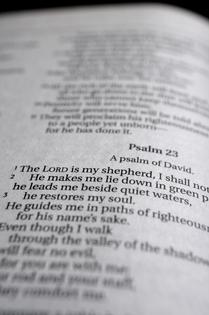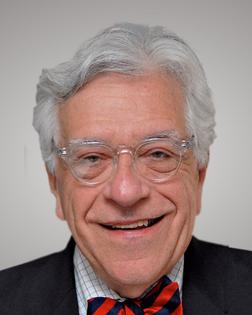The God Squad: Psalm 23 … the next two words
Last week in response to M from Harrisburg, Pennsylvania, who is a member of the Good Shepherd Lutheran Church’s Bible Study Group, I began a study guide for the 23rd Psalm. I may offer study guides for other Psalms and biblical texts but as I suspected, I only got through the first two words, “The Lord is my shepherd” before the column ran out of space! Today, I am hopeful to get through at least the next two words, “I shall not want.”
The King James Version translates these two Hebrew words (lo echsar) as, “I shall not want” but the Hebrew for wanting is hafatz not echsar, which would mean that the proper translation should be, “The Lord is my shepherd, I shall not lack.”
The first study question is obvious, “What is the difference in your opinion between wanting and lacking? I will admit that this difference is not always as clear as it seems. In English when we say, “I shall want for nothing” we really are saying, “I shall not lack.” However, I still cling to the simple and obvious difference between wanting and lacking. To not want is to be free from desires. To not lack is to be filled with gratitude. Desires can be noble or base, but knowing that right now in your life, without adding anything to your life, you lack nothing you really need is always noble and always spiritually uplifting. The Psalmist is reminding us sheep that, despite the ever-present danger of wolves, because of the Good Shepherd we have all that we need to arrive home and happy. “I shall not want” is just not the same to me as “I shall not lack.”
I cannot believe that God prohibits us from wanting. Wanting is the engine of ambition and ambition is the engine of self-improvement. Is there anything wrong with wanting to become more educated or more successful or more healthy or more humble or more forgiving? I don’t think so. Wanting foolish or trivial or material things is clearly wrong, but wanting itself is a natural and productive human emotion. If, however, we translate these two words, lo echsar, as a statement that we really do possess everything we need to live a happy spiritually contented life right now, then the verse becomes a transcendent affirmation of our gratitude, not our greed. Yes, most all of us would be happy to get more, but most of us would also acknowledge that we lack nothing important in order to make our lives a testimony to God’s grace today.
Father Tom Hartman once traveled to India and in Calcutta he visited a woman in a slum. She lived in an improvised shack and truly had nothing due to her crushing poverty. However, her poverty was not crushing to her. To Tom’s stunned amazement, she even offered him a cold bottle of soda when he entered her hovel. She was smiling at her joy at being able to offer Tom this precious gift that surely cost her weeks of menial work to afford. She had nothing but she also lacked for nothing. This is not a contradiction. Even in the dust, she was able to receive a visitor with kindness and sacrificial generosity.
So, let us ask: What do you really want and what do you really lack? Do you believe that getting what you want will make you happier? Studies show that once we have enough to avoid starvation and homelessness, our happiness index does not rise with our income. People who have won the lottery report that after about a year they are just as happy as they were before they fell into a bucket of cash.
What do you really want? Now ask yourself how much of what you want do you already possess. You want to be loved and you are loved right now. You want to be healthy and you are not dead yet. You want to have something to do that you love. You already love some things and it is within your power to weave them into the fabric of your life. Saying that you lack nothing is not just some foolish sentiment. It really is the truth and all that you need now is to embrace that truth. Embracing it will actually transform you from a sheep into an (assistant!) shepherd.
All human happiness and flourishing leads back to the Good Shepherd. We know that we are loved by God. We know that we are led by God and with those two beliefs we lack nothing.
Oops! Out of time again. Next week, I promise to finish our visit to the 23rd Psalm.
(Send ALL QUESTIONS AND COMMENTS to The God Squad via email at godsquadquestion@aol.com. Rabbi Gellman is the author of several books, including “Religion for Dummies,” co-written with Fr. Tom Hartman.)
©2021 The God Squad. Distributed by Tribune Content Agency, LLC.
(c) 2021 THE GOD SQUAD DISTRIBUTED BY TRIBUNE MEDIA SERVICES, INC.










